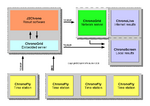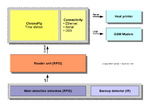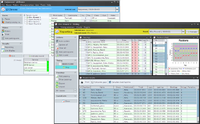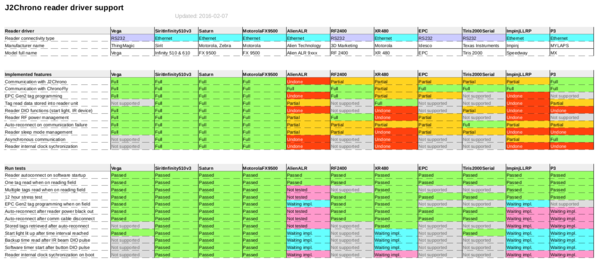(→Active technology) |
(→Passive technology) |
||
| Line 51: | Line 51: | ||
* 3D-Marketing (previously Ensyc, all readers) | * 3D-Marketing (previously Ensyc, all readers) | ||
* Zebra/Motorola (FX series readers) | * Zebra/Motorola (FX series readers) | ||
| − | |||
* Texas Instruments (Tiris series readers) | * Texas Instruments (Tiris series readers) | ||
Revision as of 21:44, 1 March 2016
J2Chrono (codename chromo) is a result service application family. Developed by Enymind Production.
Contents
J2Chrono result service software
User's manuals
More in J2Chrono User's manual
Demonstration data
Download here. Load data in J2Chrono: File->Backup->Restore backup You have to enter license data again after restore (asks it).
Plugins
More in J2Chrono Plugins
System requirements
- Oracle Java Runtime Environment 7 or 6
- Oracle Binary Code License Agreement for the Java SE
- When using transponder reader you need one free ethernet or serial port.
- When using serial port, install also RXTXComm
- To enable SMS functionality in Linux environment, install also SMS Server Tools.
Operating system and hardware requirements
- Windows 2000/XP/Vista/7/8/10, Linux Debian Etch or newer/(Ku/Xu/U)buntu Hardy or newer, experimental: MacOS X Tiger or newer
- 1800MHz 32/64bit i586/amd64 processor or better
- 1024MB RAM memory
- J2Chrono, 22MB free disk space
- Java Runtime Environment, 100MB free disk space
- VGA compatible display adapter, 64MB video memory or more
- Screen resolution at least 1366x768
- Keyboard and mouse
Supported reader devices
Passive technology
- ImpinJ (Speedway series readers)
- Alien (ALR-9xxx series readers)
- Sirit (Infinity series readers)
- ThingMagic (all readers with Mercury API)
- 3D-Marketing (previously Ensyc, all readers)
- Zebra/Motorola (FX series readers)
- Texas Instruments (Tiris series readers)
Active technology
- MyLaps MX decoders (P3 protocol)
Ports
- Ethernet port (if needed, for reader unit or wired connection)
- USB ports (if needed, for gsm modem or usb memory stick)
- Serial port (if needed, for heat printer or reader unit)




